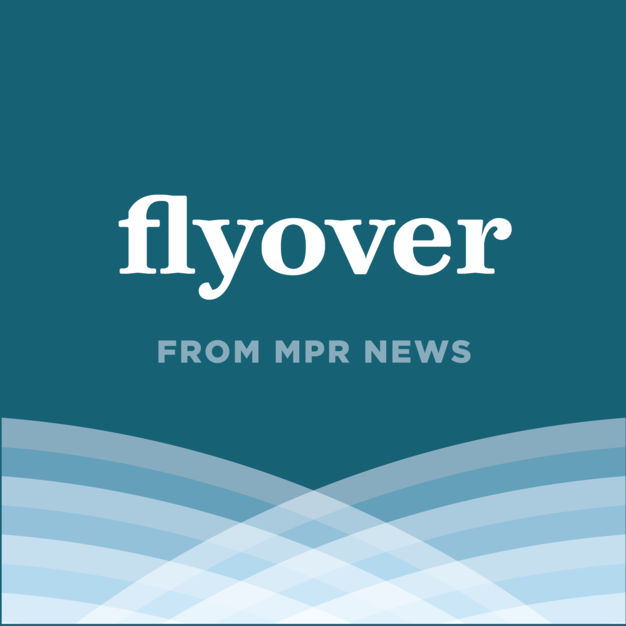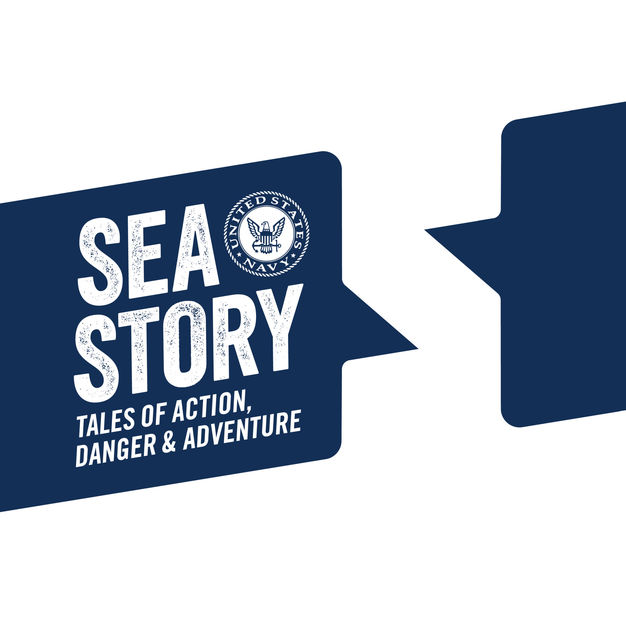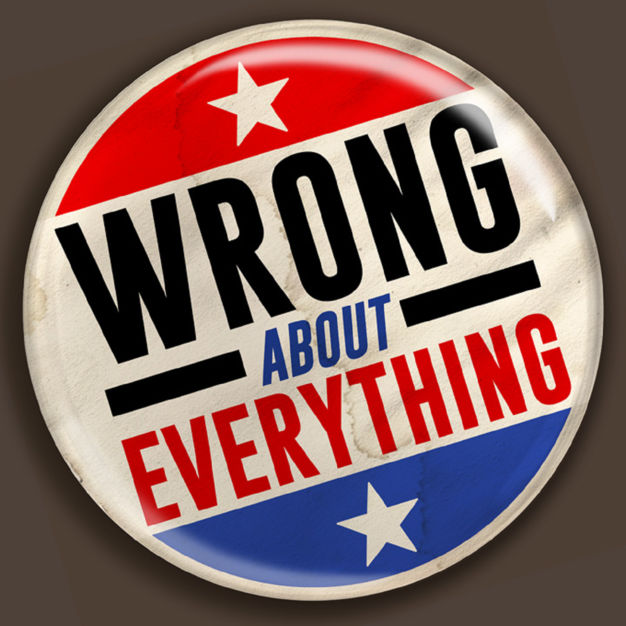
Flyover
Flyover from MPR News focuses on issues of American identity and the changing American dream as they are lived and experienced in the cities, towns and rural areas that lie beyond the media spotlights in New York, D.C. and L.A. This podcast is an unedited hour of live talk radio. Award-winning host Kerri Miller grounds each week’s topic in a specific place, inviting a public radio journalist from a partner station to discuss how the week’s topic is playing out on the ground in the city where they live and work before looking at the broader context. Throughout the show, Kerri takes calls and social media comments from listeners around the country for perspectives that transcend the daily news feed and root the topic in genuine experience. Join the conversation at flyoverradio.org #flyoverradio
- 48 minutes 16 secondsWomen in politics
Only one woman, U.S. Rep. Tulsi Gabbard, remains in the Democratic race for president. But that picture doesn’t tell the whole story. Across the country, more women are running for office than ever before. The 2018 election was widely hailed as the Year of the Woman, as women ran for office and voted in record numbers – many of them Democrats galvanized by the election of President Trump.
“This is so much larger than a political reaction,” says Stephanie Schriock, president of Emily’s List. “[It’s] a cultural change. So many women are saying, ‘I need to serve, I have something to offer, I can do this.’ That’s not gonna go away when Trump’s out of office.”
On Flyover 2020, we took a closer look at this new wave of women entering politics. What motivates them to get in the ring, knowing they will face discrimination and attacks?
Guests:
Dianne Bystrom, director emerita of the Carrie Chapman Catt Center for Women and Politics at Iowa State University.
Erin Vilardi, founder and CEO of Vote Run Lead.
5 March 2020, 5:00 pm - 45 minutes 37 secondsFlyover 2020: Farmer identity
In the Upper Midwest, farming maintains a wholesome glow. Red barns, picket fences and photos of kittens weaving among jugs of frothy milk loom large in our collective psyche.
But reality is more stark. Farm bankruptcies are up. Thousands of farms have simply closed. Farm debt is at an all-time high. Add in a trade war, severe weather and tanking crop prices, and it’s not hard to understand why health workers are worried about a spike in suicide and depression.
At the same time, new farmers – usually young and passionate about regenerative practices and helping others – are entering the field.
Thursday, for our Flyover 2020, we talk about the changing farming identity, and what it means to be a farmer today.
Guests:
Jenni Patnode, whose blog post “The Last Milking” went viral after the sale of her and her husband’s fourth-generation Wisconsin dairy farm
Hannah Breckbill, co-owner of the Humble Hands Harvest farm outside Decorah, Iowa
13 February 2020, 5:00 pm - 51 minutes 15 secondsFlyover 2020: What does patriotism mean?
The Upper Midwest is patriotic. But how that word is defined varies, depending on where you are standing and to whom you are talking.
Thursday on Flyover 2020, we delve into the concept of patriotism and the role that the urban/rural divide plays in how the value is expressed – and how people vote.
Guests:
Francesco Duina, sociology professor at Bates College in Maine and author of the book “Broke and Patriotic: Why Poor Americans Love Their Country”
Arlie Hochschild, sociology professor emeritus at University of California Berkeley and author of the book “Strangers in their Own Land”
5 February 2020, 8:48 pm - 48 minutes 47 secondsThey Believed: Maya Angelou’s ‘On the Pulse of Morning’
When Maya Angelou stepped to the podium on a cold January day in 1993, she became the first African-American and the first woman to offer an inaugural poem. And what a poem it was. “On the Pulse of Morning” garnered immediate praise for its sweeping portrait of American history and wisdom.
Elizabeth Alexander remembers that moment – and contrasts it with her own time on the same stage – on MPR News with Kerri Miller, in the first installment of an occasional series, “They Believed.” At this pivotal moment in U.S. history, we want to look back at the words of America’s firebrands, visionaries and truth-tellers. What do they reveal about who we were then – and who we are now?
Guest:
Elizabeth Alexander is a poet and scholar. She currently leads The Andrew W. Mellon Foundation.
23 January 2020, 4:30 pm - 26 minutes 25 secondsIdentity Politics
The Upper Midwest is one of the most unpredictable places in politics right now. Voters in more than 50 counties in Minnesota, Wisconsin, Iowa, Illinois and Michigan flipped from President Obama in 2012 to President Trump in 2016. And so-called identity politics played a role in that, for better or worse.
Today on Flyover 2020, we talk about how both political parties try to activate specific segments of voters – and whether that practice is leaving us even more fractured. We also talk with a conservative pastor from a small town in Iowa who defies some of those labels.
Guests:
Khalilah Brown-Dean, political science professor at Quinnipiac University and the author of the new book “Identity Politics in the United States”
Rev. John Lee, Bethel Christian Reformed Church, Sioux Center, Iowa
16 January 2020, 4:15 pm - 42 minutes 13 secondsFlyover 2020: Rural America’s brain gain
It’s a surprise to many: Rural America is more politically diverse, more educated and more economically optimistic than stereotypes lead us to believe.
Maybe most encouraging to the Upper Midwest: Many small towns are reversing the so-called brain drain and showing a brain gain. Young people who left their hometowns to go to college are increasingly likely to move back in their 30s and 40s, bringing with them college degrees, new businesses and families.
On this episode, we look at the changing demographics and misunderstood labels of rural America. It’s the next installment in our Flyover 2020 series, which examines the issues that matter to the Upper Midwest and the 50 or so flipped counties in our region.
Guest:
Ben Winchester, University of Minnesota researcher documenting the rural brain gain
9 January 2020, 4:30 pm - 49 minutes 43 secondsFlyover 2020: Polarization anxiety
When it comes to flipped counties, the Upper Midwest is ground zero. More than 50 counties in Iowa, Wisconsin, Minnesota, Michigan and Illinois that voted for Barack Obama in 2012 voted for Donald Trump in 2016. And many of them flipped big — in some cases, by more than 30 points.
So this year, we are reviving Flyover to examine how our life experiences, beliefs about issues and compatibility with candidates shape the perception of Upper Midwestern voters as we move toward the 2020 election.
Our first topic: polarization anxiety. It’s a term created by anthropologist Jose Santos to describe what he sees in the classroom: students unable to discuss topics because of the polarized climate we live in. That inhibits conversation and learning.
Guest:
Jose Santos, anthropologist and professor at Metro State University
To listen to the full conversation you can use the audio player above.
Subscribe to the MPR News with Kerri Miller podcast on: Apple Podcasts, Google Podcasts , Spotify or RSS.
2 January 2020, 6:37 pm - 50 minutes 26 secondsVoices from the Bayou
We close our week-long series of conversations about the Mississippi River with a townhall event from deep in Louisiana's Mississippi River delta.
Our "Voices from the Bayou" special wraps up our journey with a community conversation on solutions to the problems faced by people in the river's watershed.
From the Larose Civic Center in Louisiana, Kerri Miller speaks to a gathering of engineers, educators, shrimpers, tribal leaders and others about their ideas, programs and progress for improving quality life along the last miles of the Mississippi.
Our guests were Donald Bogen, co-director of Bayou Interfaith Shared Community Organizing; Chief Shirell Parfait-Dardar of the
Grand Caillou/Dula Band of Biloxi-Chitimacha-Choctaw; Denise J. Reed of the Coastal Management and Restoration Science at the University of New Orleans; and Lance Nacio, a shrimper and coastal advocate.20 July 2018, 5:00 am - 50 minutes 25 secondsHow the river divides us
This episode brings us to New Orleans to explore the way the river divides people and the way a changing climate exacerbates that problem.
Our guests are Happy Johnson, chief resilience officer, Lower 9th Ward Center for Sustainable Engagement & Development and co-founder of the Team Happy Foundation; Heather Stone, oral historian and assistant professor at the University of Louisiana at Lafayette; and Tegan Wendland, interim news director and reporter for WWNO in New Orleans.19 July 2018, 5:00 am - 49 minutes 42 secondsBalancing agriculture and water health
What happens here in the fields and farms of Iowa and the rest of the Midwest has an effect on the Mississippi River and its watershed all way down to the Gulf of Mexico. But the country needs the crops that Iowa produces. How do we find the right balance?
18 July 2018, 5:00 am - 49 minutes 13 secondsWho controls the Mississippi River?
In many towns and cities along the river, there are clashes over levees, diversion plans. dredging drainage and development. Are we listening to more than just the interests with the loudest voices and most money? Are government decision-makers hearing from enough individuals?
Kerri Miller digs into these questions with two guests: Roger Wolf, director of environment program and services at the Iowa Soybean Association, and Carrie Jennings, research and policy director at the Freshwater Society.17 July 2018, 5:00 am - More Episodes? Get the App
Your feedback is valuable to us. Should you encounter any bugs, glitches, lack of functionality or other problems, please email us on [email protected] or join Moon.FM Telegram Group where you can talk directly to the dev team who are happy to answer any queries.
 Playing Politics
Playing Politics
 Westminster Town Hall Forum
Westminster Town Hall Forum
 SmartSex
SmartSex
 SEA STORY
SEA STORY
 American Suburb
American Suburb
 Wrong About Everything
Wrong About Everything